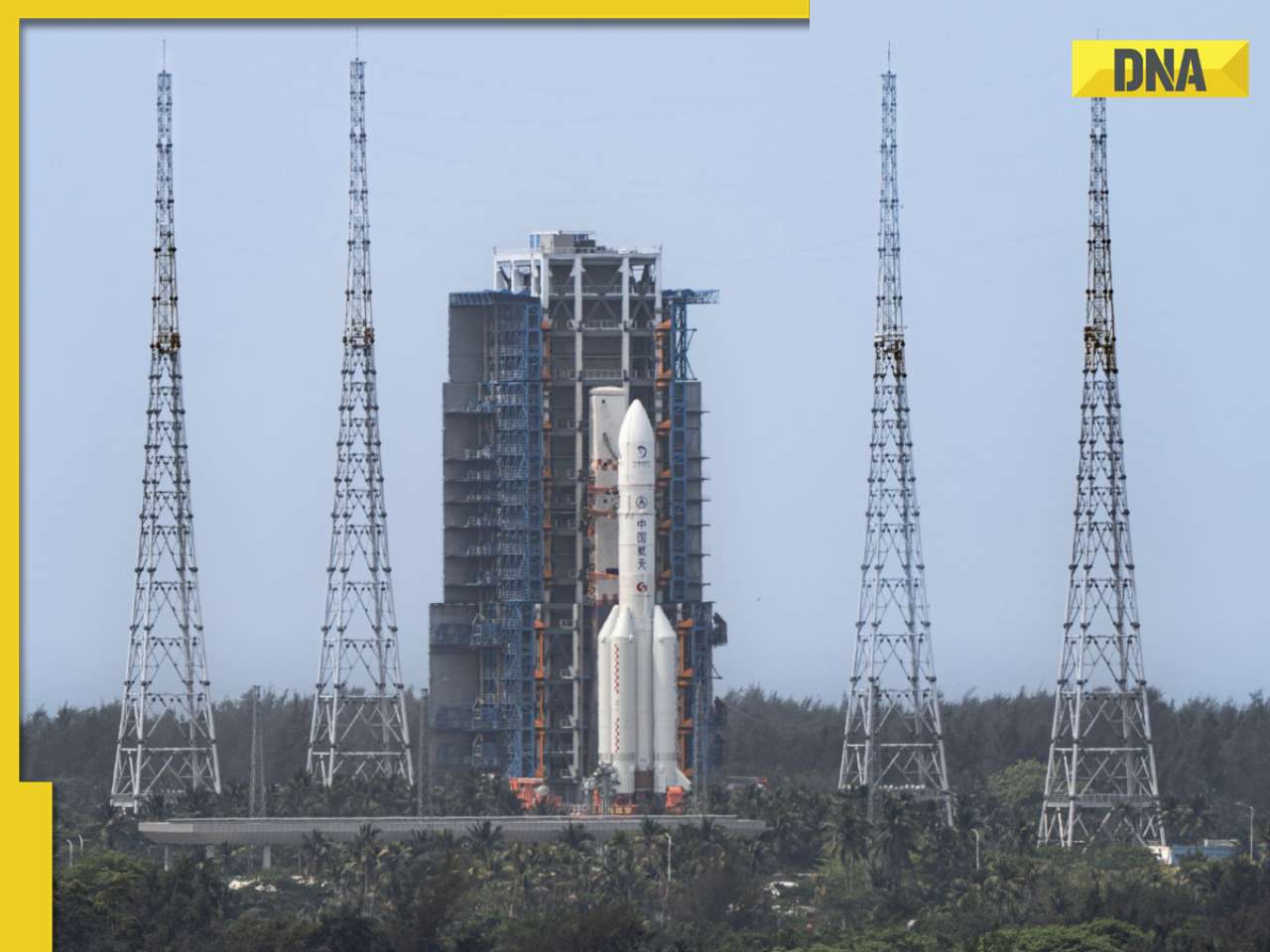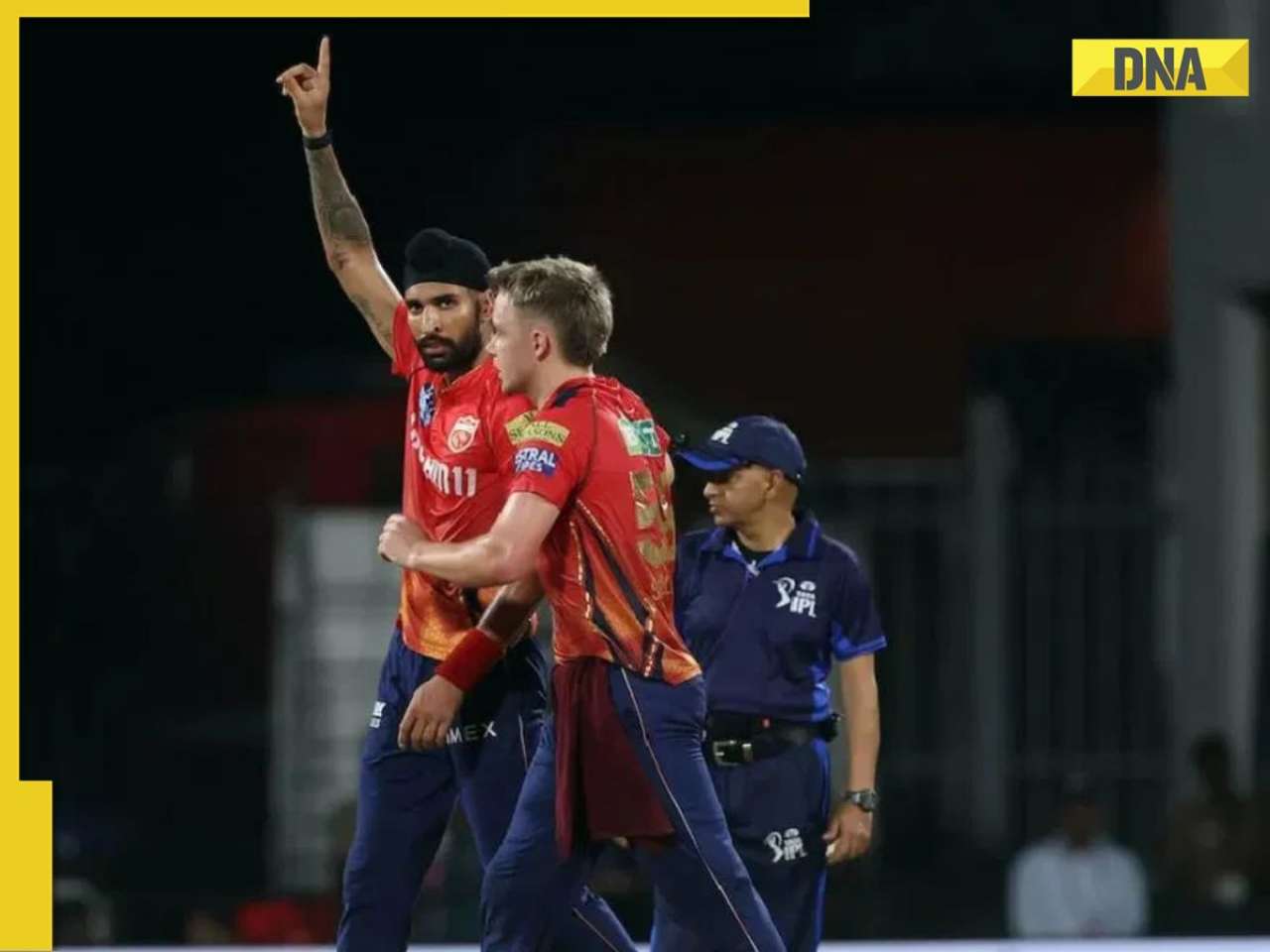A bench of justices GS Singhvi and AK Ganguly chided the Rajasthan High Court for upholding the allotments despite rulings that the Land Acquisition Officer can only grant monetary compensation to claimants.
Land acquired for public purpose cannot be re-alloted to other beneficiaries, the Supreme Court has ruled castigating politicians and authorities for perpetuating a land racket in Jaipur city which witnessed litigation for over two decades.
A bench of justices GS Singhvi and AK Ganguly also chided the Rajasthan High Court for upholding the allotments despite the Supreme Court's rulings that the Land Acquisition Officer under the Land Acquisition Act can only grant monetary compensation to the claimants.
It regretted that the Government and the High Court chose to misinterpret recommendations of a panel headed by the Urban Development Minister for allotment of the 552bighas of land to vested interest without any statutory sanction.
It was a "crude attempt by the concerned political functionaries of the State to legalise what had already been declared illegal by this Court," the bench said.
The controversy related to acquisition of land on May 13, 1960 by Rajasthan Improvement Trust to acquire 552bighas of village land at Bhojpura and Chak Sudershanpura for planned development of Jaipur city including a building for the State Legislative Assembly.
It was alleged that initially a committee headed by the then Urban Development Minister Ms Kamala in the early 1970s suggested the Land Acquisition Officer allotted the same land to certain vested interest at Rs8 per square yard, instead of using it for the stated public purpose.
The allotment, challenged in various courts, lingered till 2000 wherein the High Court also approved the allotment.
Meantime, a recommendation was made on December 6, 2001 by an official panel headed by the Urban Development Minister for legalising the allotment though no such executive order was passed to the effect.
Yet, the allotment was made and the High Court approved it. Aggrieved the Jaipur Land Development Authority challenged the move.
"It is difficult, if not impossible, to comprehend as to how the division bench could rely upon the so called policy decision taken by the Government in flagrant violation of two judgements of this Court wherein it was categorically held that transactions involving transfer of land after issue of notification under Section 4 were nullity and the Land Acquisition Officer did not have the jurisdiction to direct allotment of land to the awardees/sub awardees, their nominees/sub-nominees," the bench said.
"The basics of judicial discipline required that the division bench of the High Court should have followed the law laid down by this Court in Radhey Shyam’s case and Daulat Mal Jain’s case and refused relief to the respondents," the bench said.
The apex court said the division bench, despite the fact that people having connection in the power corridors and economically affluent had illegally taken possession of the acquired land and raised construction, had approved the policy.
"What the High Court has done is to legitimise the transactions, which were declared illegal by this Court and this was clearly impermissible. The High Court’s understanding of the so called policy framed by the Government was clearly erroneous," the bench said.
The bench said the letter written by Deputy Secretary (Administration), Urban Development Department to Secretary, Jaipur Development Authority, Jaipur cannot, in any case, be treated as a policy decision taken by the State Government.
"No document was produced before the High Court and none has been produced before us to show that the recommendations made by the Committee of Ministers had been approved by the State Government culminating in issuance of a policy circular."
"It is trite to say that all executive actions of the Government of India and the Government of a State are required to be taken in the name of the President or the Governor of the State concerned, as the case may be [Articles 77(1) and 166(1)]"
"That letter merely speaks of the discussion made by the Committee and the decision taken by it. By no stretch of imagination the same can be treated as a policy decision of the Government within the meaning of Article 166 of the Constitution," the court said.
The bench said even if the instructions contained in the December 6, 2001 was treated as Government's policy decision, the High Court should have quashed the same because the said policy was clearly contrary to the law declared by the apex Court.
"Although, we are prima facie satisfied that execution of lease deeds by the appellant in favour of some persons in 2002 and 2003 is a clear indication of deep rooted malaise in the functioning of the appellant and is also indicative of sheer favouritism and nepotism, we refrain from pronouncing upon the legality of those transactions because the beneficiaries are not parties to these appeals," the bench said.
The apex court also imposed a fine of Rs5 lakh each on two of the claimants- Vijay Kumar Data and Daya Kishan Data for prolonging the litigation.
![submenu-img]() Big update on Pakistan's first-ever Moon mission and it has this China connection...
Big update on Pakistan's first-ever Moon mission and it has this China connection...![submenu-img]() 2024 Maruti Suzuki Swift officially teased ahead of launch, bookings open at price of Rs…
2024 Maruti Suzuki Swift officially teased ahead of launch, bookings open at price of Rs…![submenu-img]() 'Kyun bhai kyun?': Sheezan Khan slams actors in Sanjay Leela Bhansali's Heeramandi, says 'nobody could...'
'Kyun bhai kyun?': Sheezan Khan slams actors in Sanjay Leela Bhansali's Heeramandi, says 'nobody could...'![submenu-img]() Meet Jai Anmol, his father had net worth of over Rs 183000 crore, he is Mukesh Ambani’s…
Meet Jai Anmol, his father had net worth of over Rs 183000 crore, he is Mukesh Ambani’s…![submenu-img]() Shooting victim in California not gangster Goldy Brar, accused of Sidhu Moosewala’s murder, confirm US police
Shooting victim in California not gangster Goldy Brar, accused of Sidhu Moosewala’s murder, confirm US police![submenu-img]() DNA Verified: Is CAA an anti-Muslim law? Centre terms news report as 'misleading'
DNA Verified: Is CAA an anti-Muslim law? Centre terms news report as 'misleading'![submenu-img]() DNA Verified: Lok Sabha Elections 2024 to be held on April 19? Know truth behind viral message
DNA Verified: Lok Sabha Elections 2024 to be held on April 19? Know truth behind viral message![submenu-img]() DNA Verified: Modi govt giving students free laptops under 'One Student One Laptop' scheme? Know truth here
DNA Verified: Modi govt giving students free laptops under 'One Student One Laptop' scheme? Know truth here![submenu-img]() DNA Verified: Shah Rukh Khan denies reports of his role in release of India's naval officers from Qatar
DNA Verified: Shah Rukh Khan denies reports of his role in release of India's naval officers from Qatar![submenu-img]() DNA Verified: Is govt providing Rs 1.6 lakh benefit to girls under PM Ladli Laxmi Yojana? Know truth
DNA Verified: Is govt providing Rs 1.6 lakh benefit to girls under PM Ladli Laxmi Yojana? Know truth![submenu-img]() Remember Heyy Babyy's cute 'Angel' Juanna Sanghvi? 20 year-old looks unrecognisable now, fans say 'her comeback will...'
Remember Heyy Babyy's cute 'Angel' Juanna Sanghvi? 20 year-old looks unrecognisable now, fans say 'her comeback will...'![submenu-img]() In pics: Arti Singh stuns in red lehenga as she ties the knot with beau Dipak Chauhan in dreamy wedding
In pics: Arti Singh stuns in red lehenga as she ties the knot with beau Dipak Chauhan in dreamy wedding![submenu-img]() Actors who died due to cosmetic surgeries
Actors who died due to cosmetic surgeries![submenu-img]() See inside pics: Malayalam star Aparna Das' dreamy wedding with Manjummel Boys actor Deepak Parambol
See inside pics: Malayalam star Aparna Das' dreamy wedding with Manjummel Boys actor Deepak Parambol ![submenu-img]() In pics: Salman Khan, Alia Bhatt, Rekha, Neetu Kapoor attend grand premiere of Sanjay Leela Bhansali's Heeramandi
In pics: Salman Khan, Alia Bhatt, Rekha, Neetu Kapoor attend grand premiere of Sanjay Leela Bhansali's Heeramandi![submenu-img]() DNA Explainer: Why Harvey Weinstein's rape conviction was overturned, will beleaguered Hollywood mogul get out of jail?
DNA Explainer: Why Harvey Weinstein's rape conviction was overturned, will beleaguered Hollywood mogul get out of jail?![submenu-img]() What is inheritance tax?
What is inheritance tax?![submenu-img]() DNA Explainer: What is cloud seeding which is blamed for wreaking havoc in Dubai?
DNA Explainer: What is cloud seeding which is blamed for wreaking havoc in Dubai?![submenu-img]() DNA Explainer: What is Israel's Arrow-3 defence system used to intercept Iran's missile attack?
DNA Explainer: What is Israel's Arrow-3 defence system used to intercept Iran's missile attack?![submenu-img]() DNA Explainer: How Iranian projectiles failed to breach iron-clad Israeli air defence
DNA Explainer: How Iranian projectiles failed to breach iron-clad Israeli air defence![submenu-img]() 'Kyun bhai kyun?': Sheezan Khan slams actors in Sanjay Leela Bhansali's Heeramandi, says 'nobody could...'
'Kyun bhai kyun?': Sheezan Khan slams actors in Sanjay Leela Bhansali's Heeramandi, says 'nobody could...'![submenu-img]() Meet actress who once competed with Aishwarya Rai on her mother's insistence, became single mother at 24, she is now..
Meet actress who once competed with Aishwarya Rai on her mother's insistence, became single mother at 24, she is now..![submenu-img]() Makarand Deshpande says his scenes were cut in SS Rajamouli’s RRR: ‘It became difficult for…’
Makarand Deshpande says his scenes were cut in SS Rajamouli’s RRR: ‘It became difficult for…’![submenu-img]() Meet 70s' most daring actress, who created controversy with nude scenes, was rumoured to be dating Ratan Tata, is now...
Meet 70s' most daring actress, who created controversy with nude scenes, was rumoured to be dating Ratan Tata, is now...![submenu-img]() Meet superstar’s sister, who debuted at 57, worked with SRK, Akshay, Ajay Devgn; her films earned over Rs 1600 crore
Meet superstar’s sister, who debuted at 57, worked with SRK, Akshay, Ajay Devgn; her films earned over Rs 1600 crore![submenu-img]() IPL 2024: Spinners dominate as Punjab Kings beat Chennai Super Kings by 7 wickets
IPL 2024: Spinners dominate as Punjab Kings beat Chennai Super Kings by 7 wickets![submenu-img]() Australia T20 World Cup 2024 squad: Mitchell Marsh named captain, Steve Smith misses out, check full list here
Australia T20 World Cup 2024 squad: Mitchell Marsh named captain, Steve Smith misses out, check full list here![submenu-img]() SRH vs RR, IPL 2024: Predicted playing XI, live streaming details, weather and pitch report
SRH vs RR, IPL 2024: Predicted playing XI, live streaming details, weather and pitch report![submenu-img]() SRH vs RR IPL 2024 Dream11 prediction: Fantasy cricket tips for Sunrisers Hyderabad vs Rajasthan Royals
SRH vs RR IPL 2024 Dream11 prediction: Fantasy cricket tips for Sunrisers Hyderabad vs Rajasthan Royals ![submenu-img]() IPL 2024: Marcus Stoinis, Mohsin Khan power Lucknow Super Giants to 4-wicket win over Mumbai Indians
IPL 2024: Marcus Stoinis, Mohsin Khan power Lucknow Super Giants to 4-wicket win over Mumbai Indians![submenu-img]() Viral video: Man's 'peek-a-boo' moment with tiger sends shockwaves online, watch
Viral video: Man's 'peek-a-boo' moment with tiger sends shockwaves online, watch![submenu-img]() Viral video: Desi woman's sizzling dance to Jacqueline Fernandez’s ‘Yimmy Yimmy’ burns internet, watch
Viral video: Desi woman's sizzling dance to Jacqueline Fernandez’s ‘Yimmy Yimmy’ burns internet, watch![submenu-img]() Viral video: Men turn car into mobile swimming pool, internet reacts
Viral video: Men turn car into mobile swimming pool, internet reacts![submenu-img]() Meet Youtuber Dhruv Rathee's wife Julie, know viral claims about her and how did the two meet
Meet Youtuber Dhruv Rathee's wife Julie, know viral claims about her and how did the two meet![submenu-img]() Viral video of baby gorilla throwing tantrum in front of mother will cure your midweek blues, watch
Viral video of baby gorilla throwing tantrum in front of mother will cure your midweek blues, watch


















































)
)
)
)
)
)